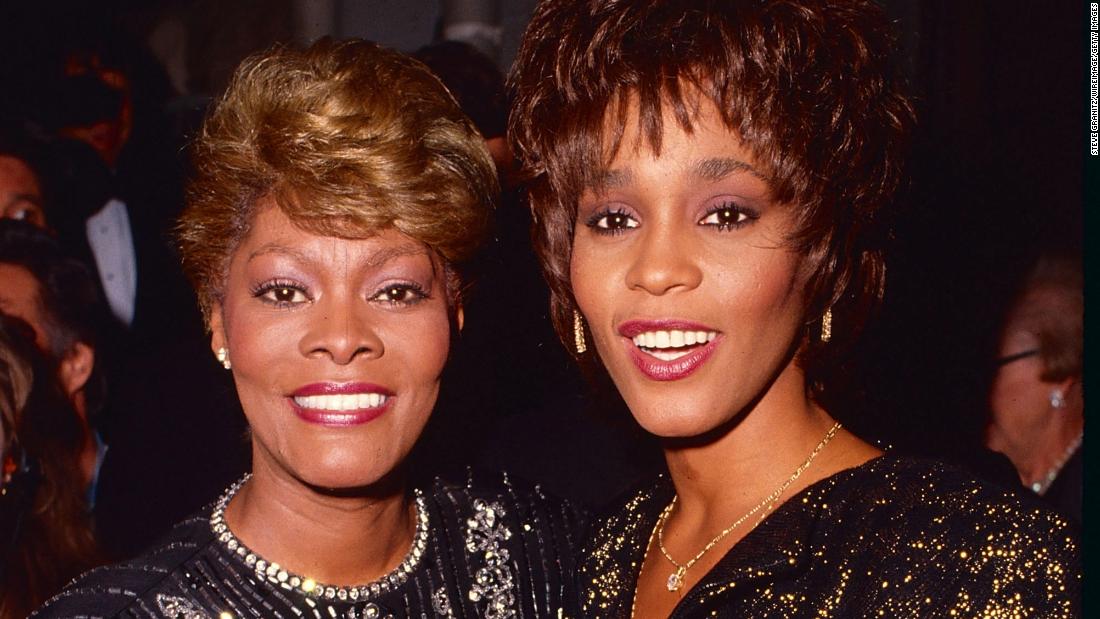20 Best Places to Sell Clothes Online for Top Dollar
In today's digital age, selling clothes online has become an increasingly popular way to declutter your wardrobe, make some extra cash, or even start a full-fledged business.

In today's digital age, selling clothes online has become an increasingly popular way to declutter your wardrobe, make some extra cash, or even start a full-fledged business. With numerous platforms available, finding the right marketplace to sell your clothes can be overwhelming. To help you navigate this bustling market, we've compiled a comprehensive guide to the 20 best places to sell clothes online for top dollar.
1. Poshmark
Poshmark is a leading platform for selling both new and gently used clothes. It caters to a fashion-forward audience and offers a simple selling process. Users can list items with photos and descriptions, and Poshmark takes a commission on each sale. The platform’s social aspect—such as following other users and sharing listings—can help increase visibility and sales.
2. eBay
eBay has been a staple in online selling for years, providing a broad reach for your clothing items. Sellers can auction their clothes or list them at a fixed price. eBay's extensive user base means potential buyers from all over the world, giving you a chance to sell high-value items at competitive prices.
3. Depop
Depop is a trendy platform favored by younger audiences and is particularly popular for vintage and unique fashion pieces. The app’s social media-like interface allows sellers to create a personal brand and engage directly with buyers. Depop takes a 10% commission on sales.
4. ThredUp
ThredUp is a consignment and thrift store online that accepts high-quality used clothes. You send your clothes to ThredUp, and they handle the listing, selling, and shipping. This hands-off approach can be ideal for those who prefer not to manage the selling process themselves. ThredUp takes a commission based on the selling price of the item.
5. Mercari
Mercari is a general marketplace where you can list almost anything, including clothes. It’s user-friendly and allows you to set your own prices. Mercari charges a 10% selling fee and offers a prepaid shipping label to streamline the process.
6. Facebook Marketplace
Facebook Marketplace provides a local selling option, allowing you to list clothes and sell them directly to buyers in your area. This platform eliminates shipping hassles and can be a great way to sell bulky items. Transactions are handled through Facebook's platform, and there's no selling fee.
7. Grailed
Grailed focuses on high-end fashion, streetwear, and designer clothes. It’s a niche platform that caters to fashion enthusiasts looking for premium items. Grailed takes a 6% commission on each sale, making it a good choice for high-value items.
8. Vinted
Vinted allows you to sell clothes, shoes, and accessories with no listing fees. The platform is popular in Europe and is expanding its reach in other regions. Vinted’s selling process is straightforward, and sellers pay a small fee based on the final sale price.
9. Tradesy
Tradesy specializes in designer and high-end fashion. It offers a luxury-focused marketplace where sellers can list their items and reach an audience specifically looking for upscale clothing. Tradesy takes a 19.8% commission on sales.
10. OfferUp
OfferUp is a local selling app similar to Facebook Marketplace. It allows you to list clothes for sale within your community, facilitating easy and quick transactions. OfferUp charges a 12.9% fee on sales made through its shipping feature.
11. Bonanza
Bonanza is an online marketplace that allows you to list a wide variety of items, including clothing. It’s known for its low fees and user-friendly interface. Bonanza charges a 3.5% fee on sales, which is lower than many other platforms.
12. Letgo
Letgo, now merged with OfferUp, is another platform for local sales. It’s a good option for selling clothes quickly and directly to buyers in your vicinity. There are no fees for local transactions, and it’s easy to use.
13. Rebagg
Rebagg specializes in selling luxury handbags and accessories. If you have designer bags or high-end items, Rebagg offers a straightforward process to get top dollar. They handle the entire selling process and charge a commission based on the item’s value.
14. Curtsy
Curtsy is a women’s fashion marketplace that focuses on selling stylish and high-quality secondhand clothes. It’s known for its user-friendly app and a focus on fashion-forward items. Curtsy takes a 10% commission on sales.
15. The RealReal
The RealReal is a luxury consignment platform that specializes in high-end fashion and accessories. It provides authentication services and a high-end marketplace for selling designer items. The platform takes a commission based on the item’s selling price.
16. Rebag
Rebag is a high-end luxury consignment store that focuses on designer handbags and accessories. If you have designer pieces in your wardrobe, Rebag offers an easy selling process and high resale values. They take a commission based on the item’s price.
17. eCrater
eCrater is an online marketplace that allows you to set up your own store and list items for sale. It offers a flexible platform with no listing fees, but sellers are responsible for driving traffic to their listings. eCrater charges a small transaction fee on sales.
18. 5miles
5miles is a local marketplace app where you can list clothes and other items for sale within your community. It’s a convenient option for quick sales without shipping hassles. 5miles charges a small fee for transactions conducted through its platform.
19. Zazzle
Zazzle allows you to create custom clothing and accessories, which you can then sell on their platform. It’s a unique option for those looking to sell personalized or branded items. Zazzle handles production and shipping, and takes a percentage of each sale.
20. Listia
Listia operates on a barter system where you trade items rather than selling them directly for cash. It’s an interesting option for those who prefer to exchange clothes for other items. Listia charges a small fee for transactions conducted through its platform.
FAQs
1. What should I consider when choosing a platform to sell clothes online?
When choosing a platform, consider factors like the platform’s reach, the type of audience it attracts, fees and commissions, ease of use, and whether it supports the type of clothing you’re selling. Some platforms are better for high-end fashion, while others cater to general or local sales.
2. How do I price my clothes for sale?
Pricing should be based on the condition of the clothing, the original purchase price, and current market trends. Research similar items on the platform to gauge what buyers are willing to pay. Remember to factor in platform fees when setting your price.
3. How do I take good photos of my clothes for online listings?
To attract buyers, take clear, high-quality photos in good lighting. Show the clothing from multiple angles and include close-ups of any unique details or flaws. Use a clean, neutral background to keep the focus on the item.
4. What are the best ways to promote my clothing listings?
Promote your listings by sharing them on social media, engaging with potential buyers through comments, and utilizing any promotional features offered by the platform. Regularly updating your listings and offering discounts or bundles can also attract more buyers.
5. How do I handle returns or disputes with buyers?
Each platform has its own policies regarding returns and disputes. Familiarize yourself with these policies and ensure your listings are as accurate as possible to avoid misunderstandings. Communicate clearly and professionally with buyers to resolve any issues.
6. Can I sell new clothes on these platforms?
Yes, many of these platforms accept new clothes in addition to used items. Make sure to clearly state whether the clothing is new or gently used in your listing to set the right expectations for buyers.
7. How long does it typically take to sell clothes online?
The time it takes to sell clothes online can vary depending on the platform, the item’s demand, and your pricing strategy. Some items may sell quickly, while others may take longer. Regularly updating your listings and promoting them can help speed up the process.
8. Are there any fees associated with selling clothes online?
Most online selling platforms charge fees or commissions on sales. These fees can vary widely, so it’s important to review each platform’s fee structure before listing your items. Be sure to factor these fees into your pricing strategy.
9. What should I do if I receive a low offer on my clothes?
If you receive a low offer, you can either accept it, counter with a higher price, or decline the offer. Evaluate whether the offer is reasonable based on the item’s value and market trends. Some platforms allow you to negotiate directly with buyers.
10. How can I ensure a smooth selling experience?
To ensure a smooth selling experience, accurately describe your items, provide clear photos, set realistic prices, and communicate promptly with buyers. Familiarize yourself with the platform’s policies and use secure payment and shipping methods.
By leveraging these top platforms, you can maximize your profits and streamline the selling process. Whether you’re decluttering your wardrobe or looking to turn your fashion sense into a business, there’s a marketplace suited to your needs.
Get in Touch
Website – https://www.webinfomatrix.com
Mobile - +91 9212306116
Whatsapp – https://call.whatsapp.com/voice/9rqVJyqSNMhpdFkKPZGYKj
Skype – shalabh.mishra
Telegram – shalabhmishra
Email -info@webinfomatrix.com
What's Your Reaction?




















.jpg)
.jpg)